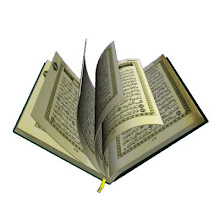- From Joshua Brockwell, CAIR(www.cair-net.org), for About.com
A man once consulted the Prophet Muhammad about taking part in a military campaign. The Prophet asked the man if his mother was still living. When told that she was alive, the Prophet said: "(Then) stay with her, for Paradise is at her feet." (Al-Tirmidhi)
On another occasion, the Prophet said: "ALLAH has forbidden for you to be undutiful to your mothers." (Sahih Al-Bukhari)
One of the things I have always appreciated about my adopted faith is not only its emphasis on maintaining the bonds of kinship, but also the high regard in which women, particularly mothers, are held. The Holy Qur’an, Islam's revealed text, states: "And revere the wombs that bore you, for ALLAH is ever watchful over you." (4:1)
It should be obvious that our parents deserve our utmost respect and devotion - second only to ALLAH. Speaking in the Holy Qur’an, ALLAH says: "Show gratitude to Me and to thy parents; to Me is thy final Goal." (31:14)
The fact that ALLAH has mentioned parents in the same verse as Himself shows the extent to which we should strive in our efforts to serve the mothers and fathers who sacrificed so much for us. Doing so will help us to become better people.
In that same verse, ALLAH says: "We have enjoined on man (to be good) to his parents: in travail upon travail did his mother bear him."
In other words, the debt we owe to our mothers is magnified due to the difficult nature of pregnancy - not to mention the nurturing and attention paid to us in infancy.
Another narration, or "Hadith," from the life of the Prophet Muhammad again shows us just how much we owe to our mothers.
A man once asked the Prophet to whom he should show the most kindness. The Prophet replied: "Your mother, next your mother, next your mother, and then your father." (Sunan of Abu-Dawood) In other words, we must treat our mothers in a manner befitting their exalted position - and, again, revere the wombs that bore us.
The Arabic word for womb is "rahem." Rahem is derived from the word for mercy. In Islamic tradition, one of ALLAH's 99 names is "Al-Raheem," or "the Most Merciful."
There exists, therefore, a unique connection between ALLAH and the womb. Through the womb, we get a glimpse of the Almighty's qualities and attributes. It nurtures, feeds and shelters us in the early stages of life. The womb can be viewed as one manifestation of divinity in the world.
One cannot help but make the parallel between a Loving ALLAH and a compassionate Mother. Interestingly, the Holy Qur’an does not portray ALLAH as exclusively male or female. As a matter of fact, by revering our mothers, we are paying respect to ALLAH.
Each of us should appreciate what we have in our mothers. They are our teachers and our role models. Every day with them is an opportunity to grow as a person. Every day away from them is a missed opportunity.
I lost my own mother to breast cancer on April 19, 2003. Though the pain of losing her is still with me and her memory lives on in my siblings and me, I sometimes worry that I might forget what a blessing she was for me.
For me, Islam is the best reminder of my mother's presence. With daily encouragement from the Holy Qur’an and the living example of the Prophet Muhammad, I know I will always keep her memory close to my heart. She is my rahem, my connection to the divine. On this Mother's Day, I am grateful for the occasion to reflect on that.


